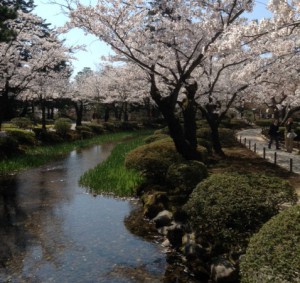Basic Course
The basic three-hour Japanese Culture and Communications Courses are of great benefit to companies, groups and individuals who will be traveling to Japan and communicating with Japanese people, as well as those who have visited Japan and wish to delve deeper into the culture and social codes of the country. Persons who are in contact with Japanese people here at home or in other countries will also benefit greatly from these courses.
Japanese Culture and Communications Courses supply the participants with important insight into Japanese culture, with emphasis on the values that are such an important part of Japanese society. The courses cover many important aspects of communication: proper etiquette in everyday situations, body language, greetings and polite phrases and much more.

Courses can be arranged in-house at Seidokan Japan Center (see Contact for address) or on location at the individual company or other place of choice.
Course in detail:
1. Japan’s History and Culture
The social values and norms that are part of Japanese society are easier to understand when you have gained insight into the culture of the country. The seminar gives a brief overview of the history of Japan, and a presentation of the social and cultural values inherent in Japanese society. Many misunderstandings and social gaffes arise because of lack of insight into these areas.
The participants are given insight into Japanese culture, social values and moral codes Communication both verbal and non-verbal is practiced. Etiquette in social situations is explained and the participants can try their skills in everyday scenarios. In this manner, the information gained at the seminar is assimilated directly.
2. Communication
English:
Communication in English in Japan can in certain cases end up in misunderstandings. There are many cases where signals are misread from both parties, and this can have dire consequences and create problems, both work-wise as well as socially. How one verbally expresses ones wishes and opinions differs from Eastern culture to Western. The seminar will deal with important aspects in this area that can be of great benefit for avoiding misunderstandings and creating smooth communication.
Japanese:
The seminar gives the participants simple phrases that will be of great use, giving the best impression in your first meetings with Japanese. The Japanese language section also includes body language and non-verbal communication.
Body Language and Non-Verbal Communication:
Body language, movements, physical behavior and attitude are very different from East to West. Examples will be shown to demonstrate these differences and how to avoid misunderstandings in these areas.
Visual Orientation:
When traveling to Japan it is highly recommended to learn to recognize certain basic Japanese ideograms, in order to avoid going into the wrong toilet, for instance! The seminar will include a presentation of the most common ideograms and their meaning.
3. Etiquette
Daily Manners
Etiquette in daily social situations is different from East to West. This ranges from things such as how to give and receive business cards and gifts, to what social signal you send with your arms crossed in front of you.
Japanese people don’t expect westerners to be Japanese, but it does create a positive first impression when they can see that you have made an effort to learn about these aspects of Japanese culture.
Table Manners:
It is a good idea to gain a basic understanding of Japanese table manners. Since meals are one of the most important times for social communication, it is a great help to know your do’s and don’ts at the table – to avoid putting ketchup on the pancakes, so to speak!
Chopsticks are the utensil of choice in Japan, and even though you are not expected to be an expert in their use, there are certain things one must be careful to avoid doing when using chopsticks. This is an area where major gaffes can be made!
Japanese people enjoy a nice glass of beer or sake at get-togethers. There are many traditions and rituals to be found in the area of drinking together in Japan. Knowing some of these details will work wonders when spending time with your Japanese acquaintances!
Further information and booking:
E-mail: info@japanbridge.dk
Telephone: (+45) 40 86 32 12
